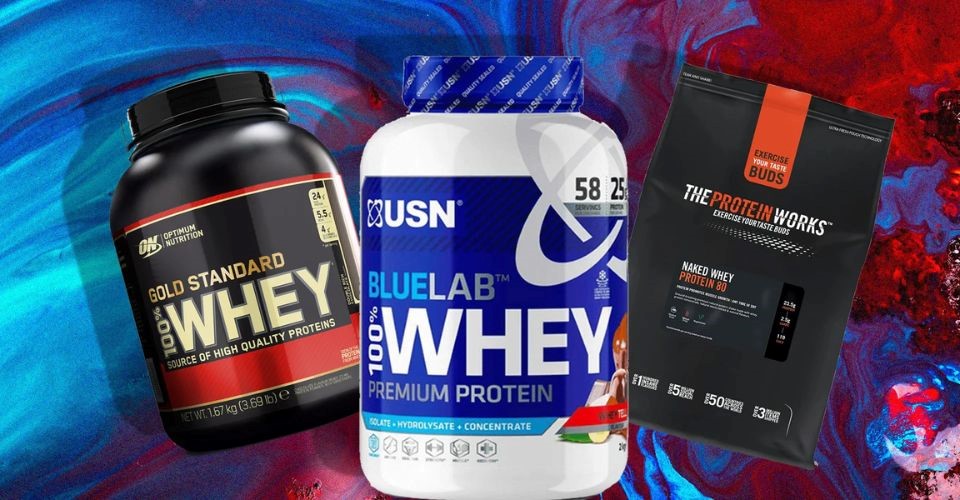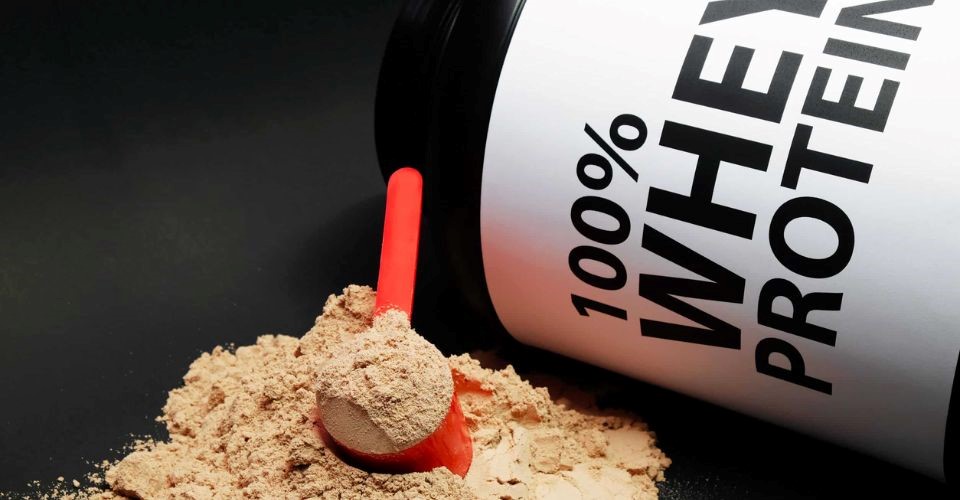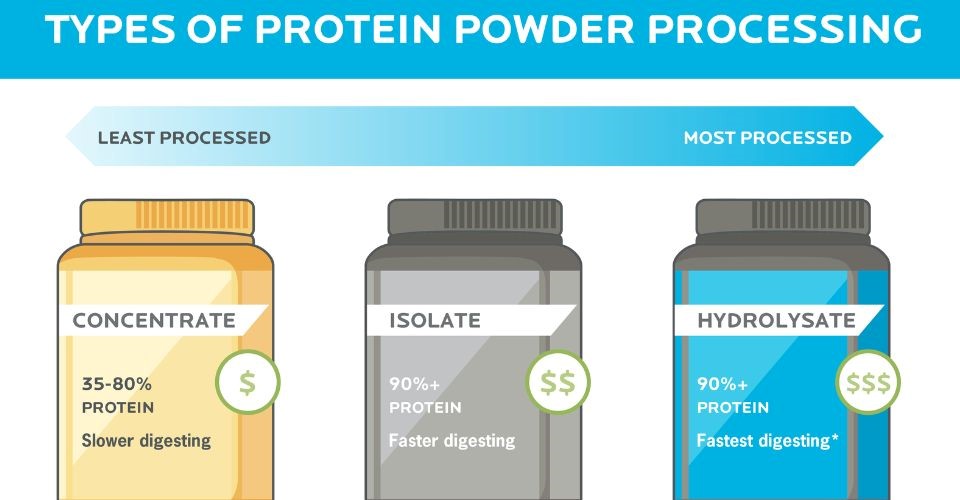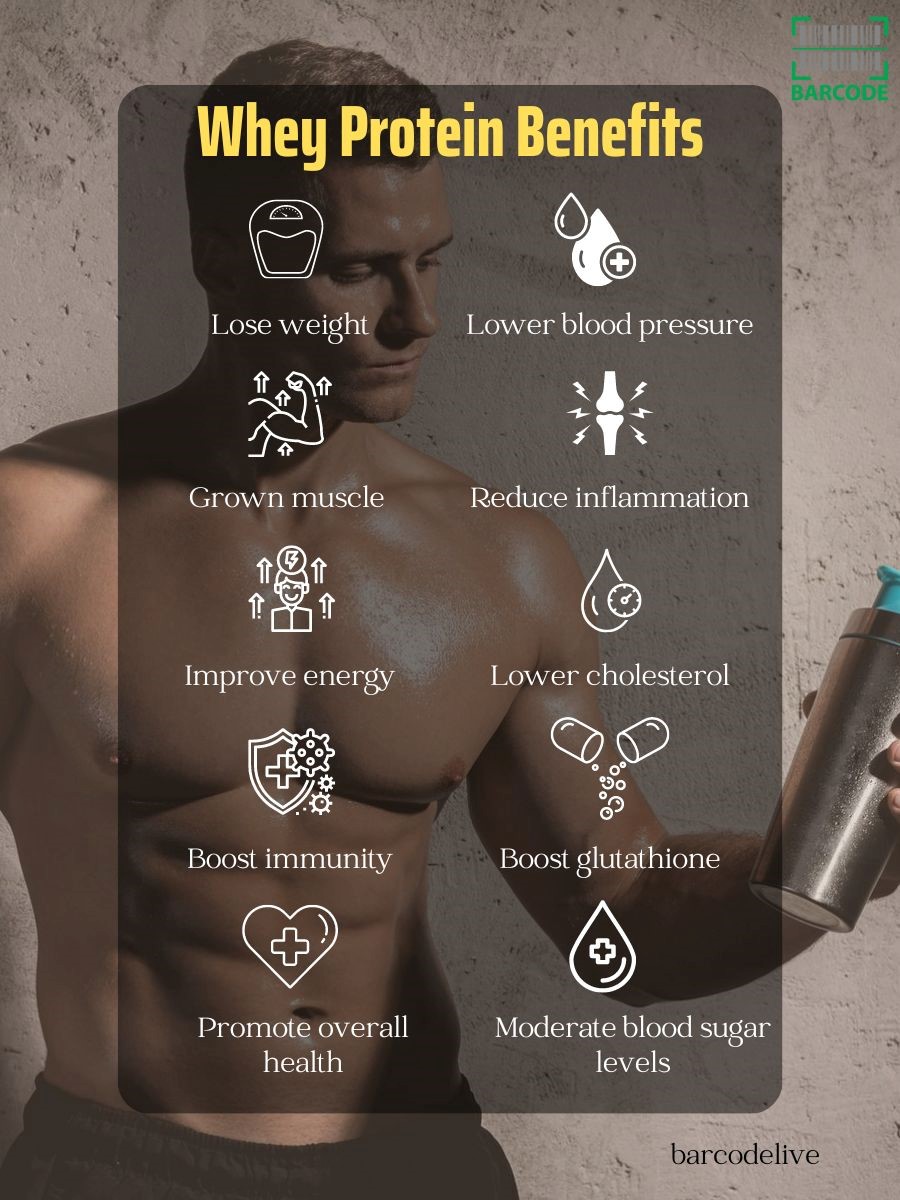9 Whey Protein Benefits For Your Health [Evidence Supported]
With good reason, whey protein is one of the most intensively studied supplements in the world.
Whey protein benefits are numerous as it has a very high nutritional content, according to studies.
Let's find out some!

A complete guide on whey protein benefits
What Exactly Is Whey Protein?
Milk contains two different kinds of protein: casein and whey.
Dr. Josh Axe, a clinical nutritionist and certified doctor of natural medicine, claims that whey is the clear liquid portion of milk that is left over after the coagulation and curd removal steps of making cheese.
In addition, the term "whey" can refer to a complex material that is extracted from the liquid and contains protein, lactose, immunoglobulins, minerals, and tiny amounts of fat.
Due to its protein content and a few highly bioactive peptides, it is well-known as a superfood for fat loss and lean muscle growth.

Whey protein
Types of Whey Protein
Concentrate, isolate, and hydrolysate are the three varieties of whey protein powder currently available on the market.
Each one is processed differently, and they all have varied nutritional values.
Whey protein concentrate
Because it has a low fat and cholesterol content and a higher quantity of bioactive substances in the form of lactose, whey protein concentrate is the best and least processed form of whey protein.
Based on the brand, this type contains between 25 and 89% protein with the other ingredients being lactose, minerals, fat, and moisture.
Numerous protein drinks, bars, and dietary supplements contain this form of whey protein. Infant formula also contains it.
Whey protein isolate
To remove the majority of the lipids and carbohydrates included in whey protein concentrate, whey protein isolate is processed further.
About 90-95% of the protein in isolates is present.
This ingredient may appear on the labels of protein supplements, such as bars and drinks.

3 types of whey proteins
Whey protein hydrolysate
Larger proteins are divided into more digestible fragments when whey protein isolate is hydrolyzed, which contains 80-90% protein.
Enzymes, heat, or acids can all be used to break down the proteins in hydrolysates.
It is frequently used in specialized infant formulas as well as dietary supplements prescribed by doctors.
What are the differences between hydrolyzed whey protein isolate vs whey protein isolate? Follow Barcode Live for more information!
Whey Protein Nutrition Facts
Before answering what are the benefits of whey protein, it’s worth looking at its nutrition facts.
Below is what is contained in three scoops of whey protein isolate powder:
|
Calories |
309 |
|
Protein |
50g (100 percent daily value) |
|
Fat |
1g |
|
Carbohydrates |
25g |
|
Fiber |
0g (0 percent daily value) |
|
Sugar |
1g |
|
Calcium |
600mg |
|
Iron |
1mg (6 percent daily value) |
|
Magnesium |
200mg (48 percent daily value) |
|
Phosphorus |
500mg |
|
Potassium |
750mg (16 percent daily value) |
|
Sodium |
320mg |
|
Zinc |
7.5mg |
|
Vitamin C |
30mg (33 percent daily value) |
|
Cholesterol |
10mg |
However, based on the whey protein source you select, like a bar or powder or bar, the precise nutritional information varies.
For example, Dymatize ISO 100 Whey Protein Powder Isolate, Gourmet Chocolate, 5 lbs contain 120 calories in one scoop (32g).
Whey Protein Benefits
Elite athletes and weekend warriors alike use whey protein to increase their muscle mass, according to Olivia Brant, RD, founder of Olivia Ashton Nutrition.
In fact, whey offers a lot of advantages besides only helping you gain muscle.
Increase muscle growth
Protein is important for the process whether you want to keep or build muscle.
Your body can develop new muscles and repair damaged muscle tissue with the help of protein, which delivers the amino acids it needs.
Leucine, a branched-chain amino acid that is the most growth-promoting (anabolic) of all the amino acids, is abundant in whey.
Also, according to certain research, whey protein may marginally outperform alternative protein sources like casein or soy for the building of lean muscle

Benefits of whey protein in muscle growth
Reduce inflammation
By lowering inflammation, whey protein may be able to aid with a variety of chronic illnesses.
Heart disease, inflammatory bowel disease, diabetes, and arthritis are just a few of the potential health issues that chronic inflammation is connected to.
According to studies, routinely including whey protein in your diet may help lower the signs of chronic inflammation and lessen your risk of experiencing poor health impacts.
Lower blood pressure
Dairy product consumption has been associated in numerous studies to lower blood pressure.
Angiotensin-converting-enzyme inhibitors (ACE inhibitors), a family of bioactive peptides found in dairy, are thought to be responsible for this impact.
ACE inhibitors found in whey proteins are known as lactokinins, which have been stated to have positive effects on blood pressure.
Despite that, only individuals who already had high or somewhat increased blood pressure experienced a drop in their blood pressure.
Reduce cholesterol levels
Whey protein can help reduce high cholesterol levels, particularly "bad" LDL cholesterol, according to early research.
Lowering your cholesterol into a healthy range might have significant positive effects on your health because high cholesterol is associated with an increased risk of heart disease and stroke.

Whey protein helps lower cholesterol levels
Moderate blood sugar levels
The National Institutes of Health's research has shown that whey protein is efficient at regulating blood sugar.
The high-quality protein raises blood levels of insulin and restores insulin sensitivity to normal levels.
Because of this, whey protein is efficiently utilized as a supplement to treat type 2 diabetes, much like the widely used diabetic medicine sulfonylurea.
Further, whey protein can help diabetics and healthy individuals with high blood sugar levels by being added to high-carb meals.
Lose weight
Is whey protein effective at losing weight?
The National Institutes for Health's studies have demonstrated the beneficial effects of dietary protein, such as whey, as a contributor to weight loss.
Whey protein benefits for weight loss more than other proteins since it:
-
Reduce appetite, resulting in lower calorie intake
-
Increase metabolism, causing you to burn more calories
-
Assist in keeping muscle mass while reducing weight
Boost immunity
Another advantage of whey protein is that it acts to strengthen your immune system since it encourages the production of glutathione.
The effectiveness of other antioxidants like vitamin C, ALA, CoQ10, and vitamin E is also increased by glutathione.
Other proteins and vitamins found in whey protein, like vitamin D, also have an impact on immunological health and have antibacterial properties.
Improve energy
In addition to boosting the action of leptin, a hormone that influences energy balance, whey protein boosts glycogen, a source of energy during exercise or intense activity.
Additionally, because whey is readily absorbed by the body and digested, it is swiftly transformed into energy and can aid in naturally boosting energy levels.

You can improve energy by taking whey protein
Boost glutathione
The powerful antioxidant glutathione, which is present in all of your body's cells, is produced more frequently when whey protein is consumed.
According to research, whey protein contains a lot of cysteines, an amino acid necessary for the production of glutathione.
Glutathione aids in the removal of free radicals, which are responsible for aging-related illnesses like Parkinson's and Alzheimer's, cancer, and cell damage.
It is also necessary for a robust immune system and aids in defending your body against environmental pollutants and drug resistance.
Promote overall health
The body naturally contains antioxidants, which reduce the chance of developing chronic illnesses.
Natural antioxidants are increased by whey protein and other high-cysteine diets, preventing chronic sickness.
According to one study, whey protein supplements help those with chronic illnesses have better liver function.
Now, let’s look at our info on whey protein benefits discussed in this article!

10 great benefits of whey protein
You may also like: Grass fed whey protein benefits
Whey protein consumption has been linked to a decrease in good gut bacteria and a rise in bad bacteria, which can result in gas, bloating, and stomach pain.
As a result, even the natural digestion of dairy products or dairy proteins by your body may be challenging.
Whey protein has been shown in studies to considerably boost weight and muscle mass.
So, underweight people frequently consume it to increase daily caloric intake and encourage weight growth.
People who have a cow's milk allergy may be allergic to whey protein since it is derived from cow's milk.
Cow's milk allergies can include runny or stuffy noses, face swelling, rashes, hives, throat swelling, and hives.
Final Words
Whey is a widely available, high-quality protein source that boasts vital amino acids and is a trustworthy choice for most people looking to lose weight or grow muscle. To receive the best advantage, you should only purchase supplements that are 100% whey and free of added sugars or fillers, advises Louloudis, RDN, founder of Louloudi Nutrition.
We believe you now understand the whey protein benefits. Keep checking back with Barcode Live for more fascinating information!
Sources:
https://www.nutritionvalue.org/Beverages%2C_Whey_protein_powder_isolate_nutritional_value.html
https://www.ncbi.nlm.nih.gov/pubmed/16365087
https://www.ncbi.nlm.nih.gov/pubmed/17684208
https://www.ncbi.nlm.nih.gov/pubmed/19589961
https://www.ncbi.nlm.nih.gov/pubmed/21367943
https://pubmed.ncbi.nlm.nih.gov/10794501/
https://www.ncbi.nlm.nih.gov/pubmed/19400750
https://www.ncbi.nlm.nih.gov/pubmed/19638084



7 Comments
Lydia Webster
Do I need to take whey protein or low-fat milk for muscle build up? Do they work the same way or does whey protein benefit you more?
Leave a Comment
Your email address will not be published. Required fields are marked *Barcodelive
Muscle build up has nothing to do with whey protein or low fat milk. As long as you are maintaining your diet, both will work equally good
Leave a Comment
Your email address will not be published. Required fields are marked *Lydia Webster
Thank u
Leave a Comment
Your email address will not be published. Required fields are marked *Kim Mathew
One question: Does vegan protein powder benefit more than whey protein? Anw, love your article!
Leave a Comment
Your email address will not be published. Required fields are marked *Barcodelive
Sounds good. 30g protein from vegan powder is equal to 30g protein from whey protein. It is not a story of benefits rather it is a story of side effects. If you’re lactose intolerant or feel any ill effects from whey, trying plant-based / vegan protein powder options instead
Leave a Comment
Your email address will not be published. Required fields are marked *Bailey Turner
As im mildly lactose intolerant will whey protein benefit me less? I have been wondering this for a while but never really got round to asking about it. I have a mild lactose intolerance where i feel a little phlegmy when i eat/drink too much milk based product and it messes with my skin a little. I have never tried cutting it out completely (maybe i should). I still use whey protein as its cheap and also ive tried some vegan alternatives and they taste pretty rough (Pea protein was the worst). Anyway i was wondering whether my body may be rejecting some of the protein content due to the intolerance and just rejecting the nutrition as a whole.
Leave a Comment
Your email address will not be published. Required fields are marked *Sai Rampersaud
Lactose intolerance is a result of your body's inability to break down milk sugar (lactose) and not the protein. If you can tolerate whey, I see no reason for the protein to be ineffective qua protein.
Leave a Comment
Your email address will not be published. Required fields are marked *Leave a Comment
Your email address will not be published. Required fields are marked *